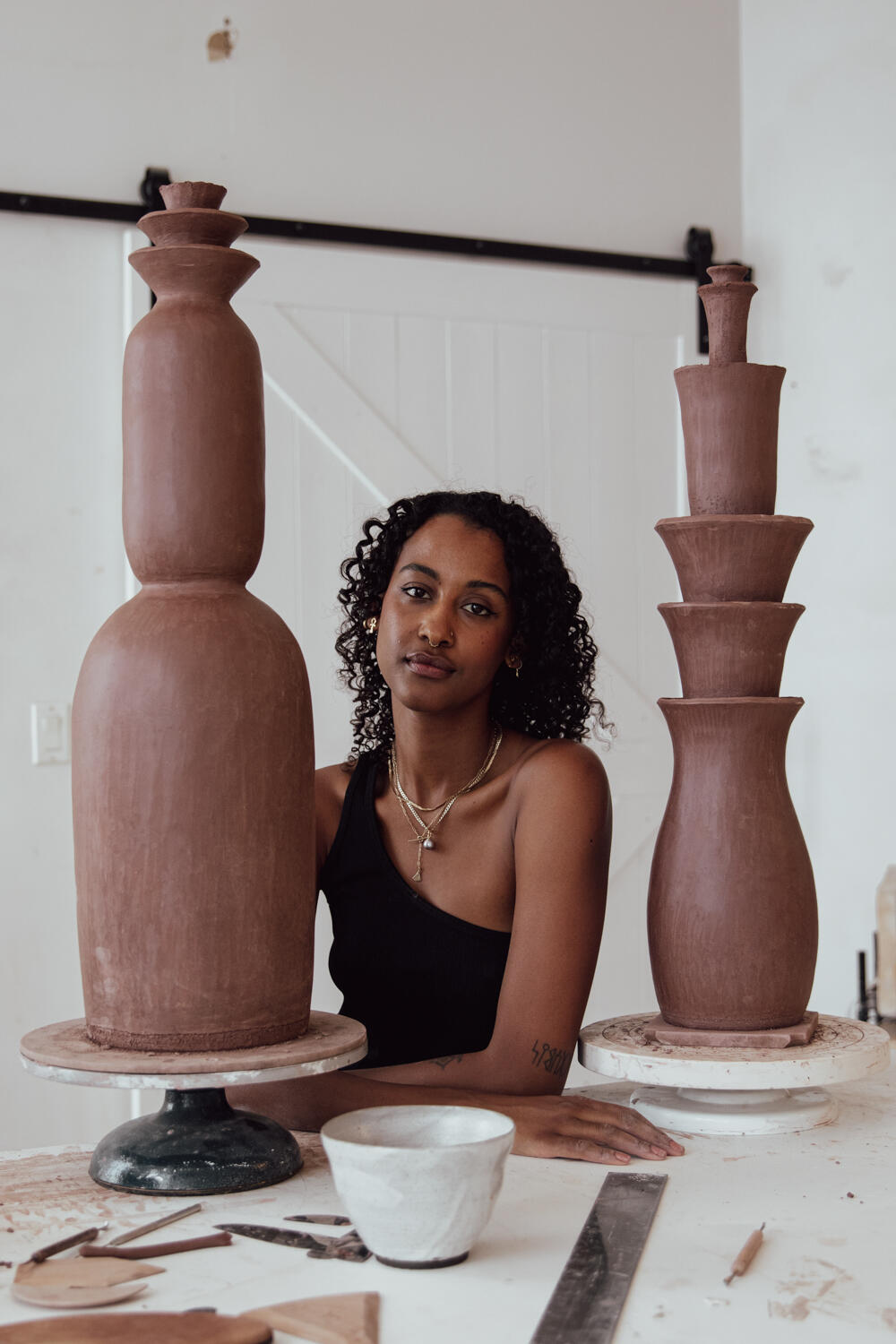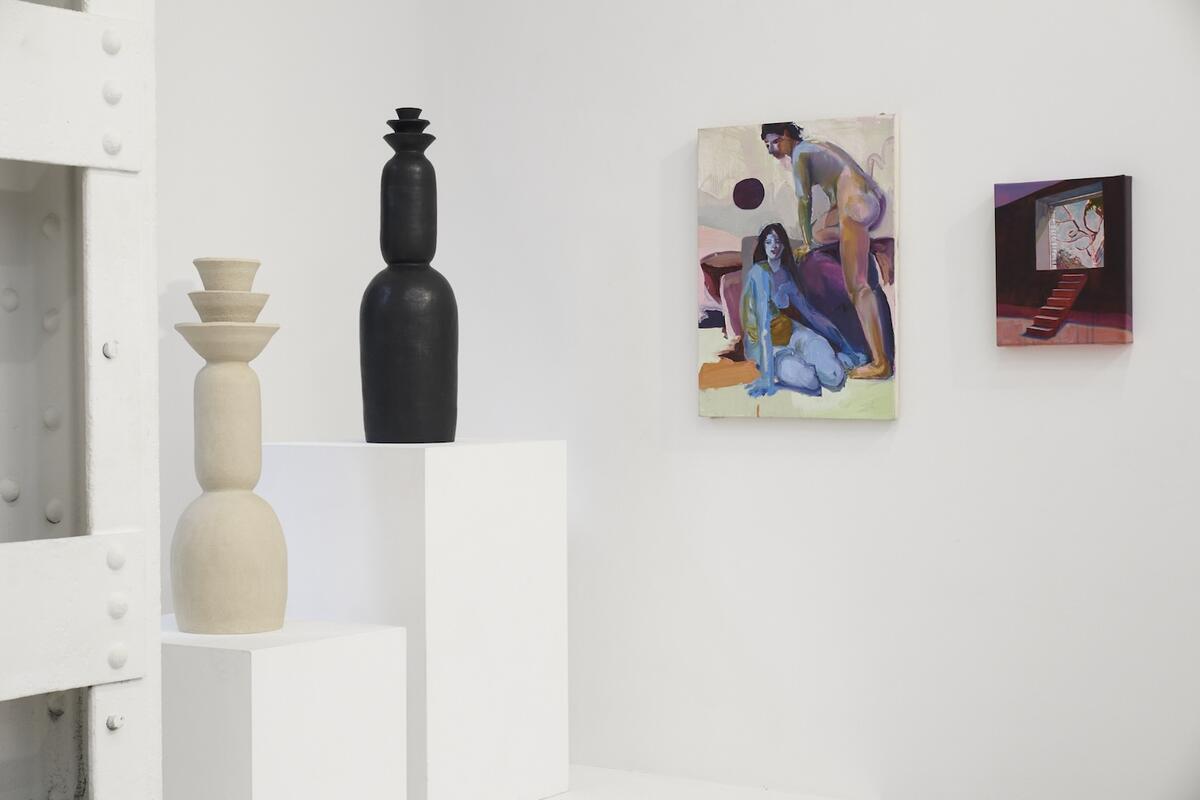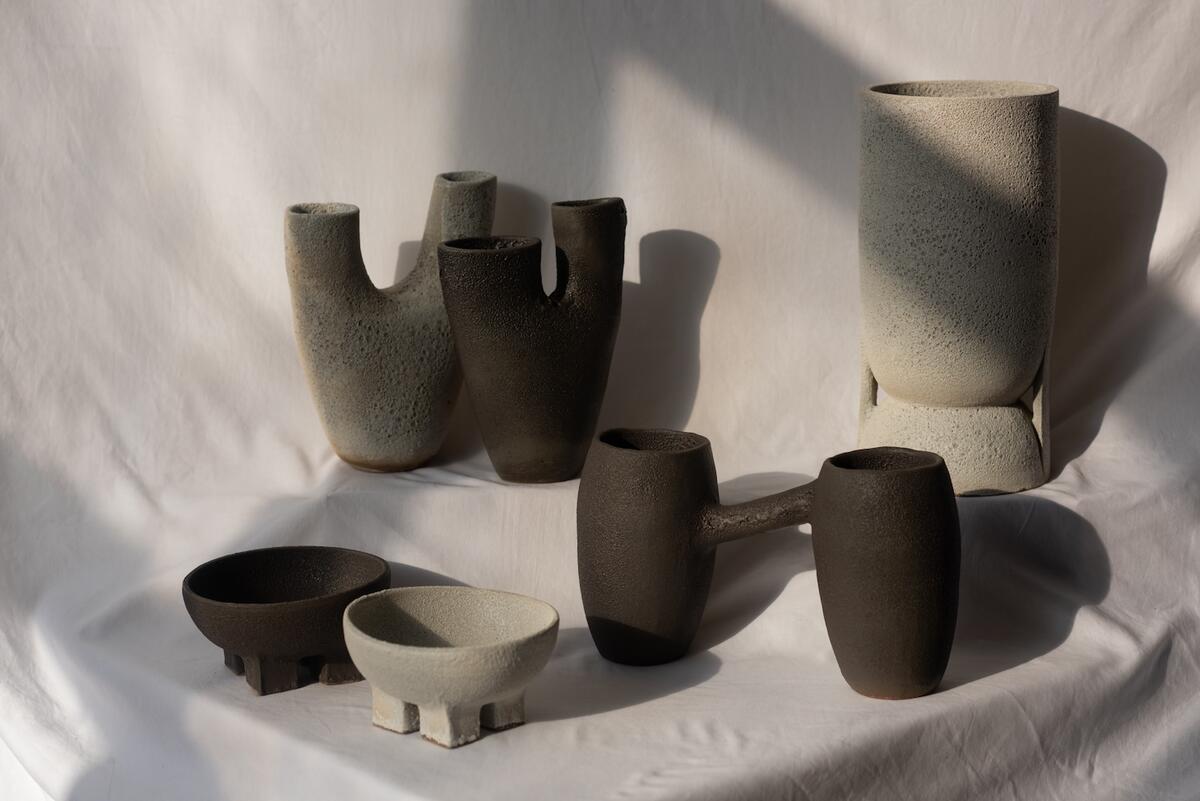Dina Nur Satti is fascinated by ceremonial objects. When crafting her bespoke pieces, the Brooklyn-based ceramist draws inspiration from the ritualistic relics her ancestors once used. “My father’s family is Nubian, and we have one of the oldest lineages of pottery in Africa, so pottery for me has always been about having a medium through which I can learn more about where I come from and connect with my heritage,” she tells Business of Home. “Ritual objects, in particular, teach us so much about how people lived and what they believed in.”

Born in Chad and raised in Belgium, Paris and Nairobi, Satti moved to New York in her late teens to study international development at Fordham University, where she began taking ceramic classes as a creative outlet. “I grew up in a very academic family, and although my father loved music and art, I didn’t see art as a viable career,” she says.
After graduating, she spent the next seven years working for the anti-poverty nonprofit Robin Hood Foundation, while continuing to take pottery lessons in her downtime. “Eventually, I knew ceramics was what I wanted to do full-time,” she says. “So I started consulting on the side while developing my ceramic work, until I was able to finally make the switch.”
She launched Nur Ceramics in 2017 with the Dune collection, an assortment of hand-sculpted tea cups and incense burners clad in sand-colored glazes she applied with thick brushstrokes. “The series was inspired by the Sahara desert,” explains Satti, who is also a painter.
Ideas for designs come instinctually for the artist, who spends days at a time fleshing out a piece from start to finish. “I enter a zone and follow my intuition,” she says. “I use the coiling technique in my work, so I need ample time to slowly form each piece of clay, and everything has to be fired twice—it’s a very humbling medium.”

Glazes play a key role in her work, often in minimalist hues such as black, white and terra cotta that allow the texture and form of the object to shine. “I was lucky enough to take classes with an incredible glaze chemist at Chic Lotz Pottery in California,” she says. “I learned how to develop my own glazes, which brings a uniqueness and depth to those finishes.”
In 2022, she was one of the first artists to complete Saint Heron’s inaugural ceramic residency at the Horizon Art Foundation in Los Angeles. “It’s rare to be in a studio space with all Black women and with Black female mentors, so I am very grateful to the Saint Heron team for their vision and commitment to fostering Black talent in the ceramic space,” says Satti. “It also helped me grow and refine my technical skills, and to create more complex pieces.”

More recently, she unveiled the Signature line of shoppable ceramic wares—which features everything from drip-glazed footed bowls to treelike asymmetrical vessels—and collaborated with big-name brands including RH and Lulu and Georgia on exclusive collections. “I’m currently working on a commission—along with two other Sudanese artists—for the Petrie Museum of Egyptian and Sudanese Archaeology in London,” she says. “Working with a museum directly in this way is a dream, since I spend so much of my time researching and gaining inspiration from my Nubian heritage.”
If you want to learn more about Dina Nur Satti, visit her website or Instagram.




























